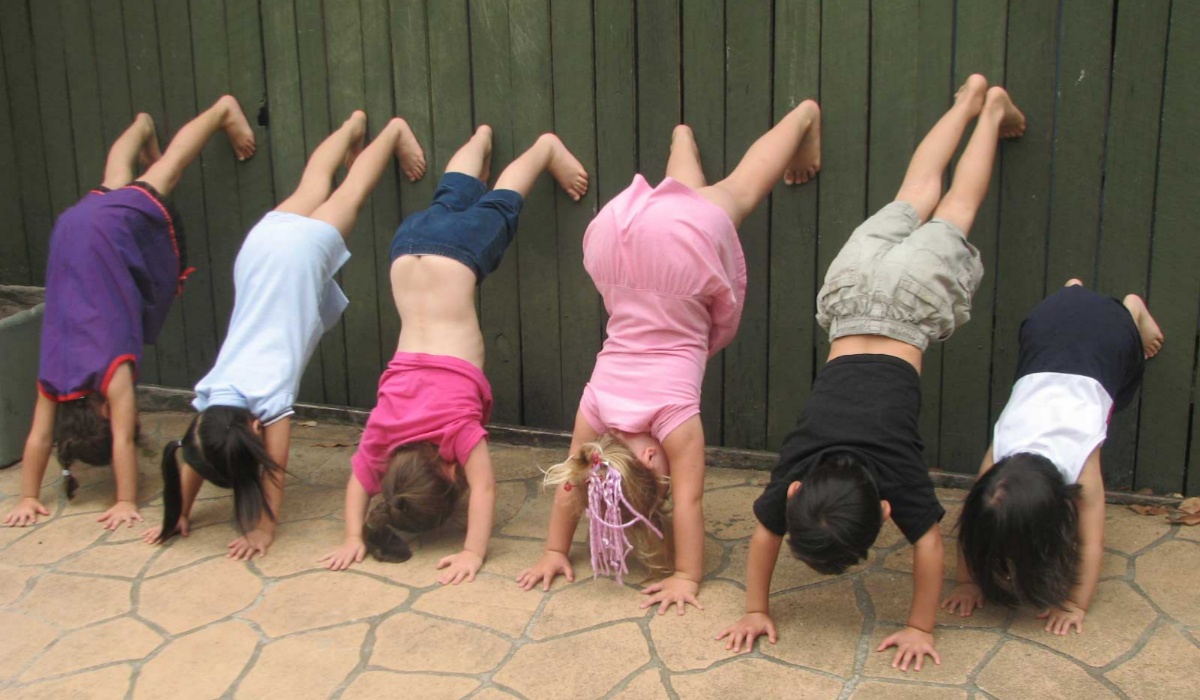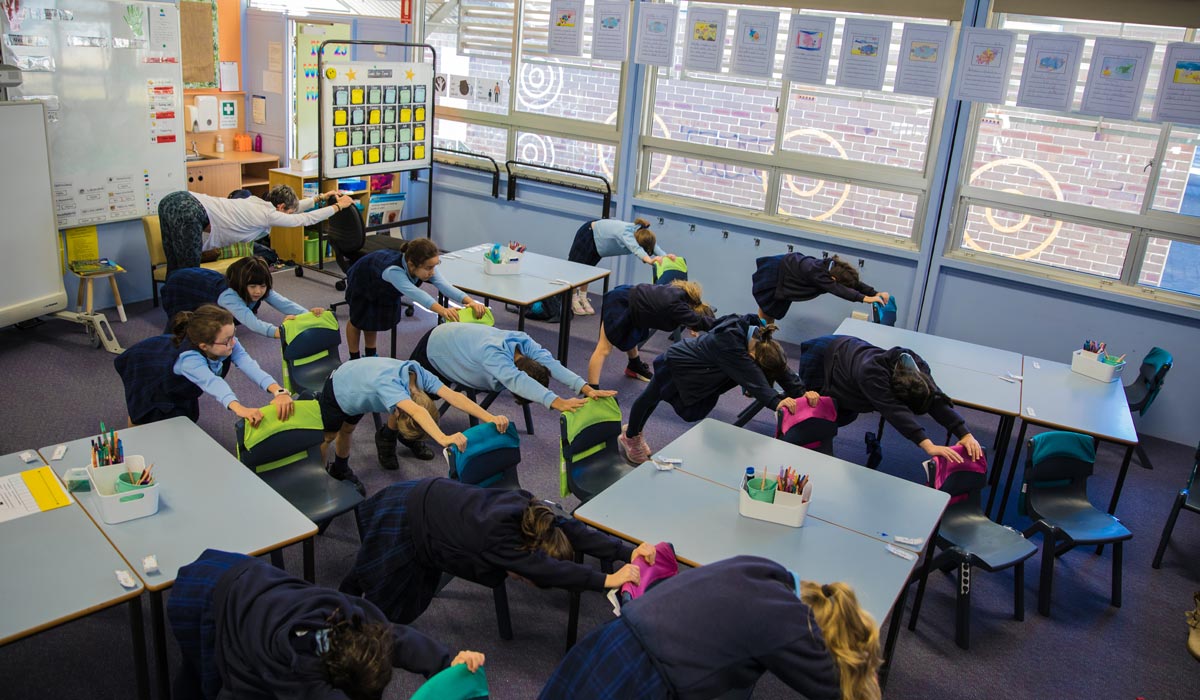We’re passionate about giving educators practical tools for creating calmer classrooms, while supporting whole child development and educator wellbeing.
The Karma Class was founded by Beth Borowsky, an Educator and former Montessori preschool teacher, and one of Sydney’s most respected yoga teachers and teacher trainers for kids and adult yoga.
Our mission is to bring the benefits of movement, breath and mindfulness into the classroom in a way that simply works for busy educators – and the children they teach – in early learning centres and primary schools.
We do this by providing simple, practical tools and techniques – based on the science of movement, breath and mindfulness – that can be implemented in just minutes a day.
Our programs recognise the relationship and synergy between educator and learner wellbeing – empowering them both with valuable skills that last a lifetime.
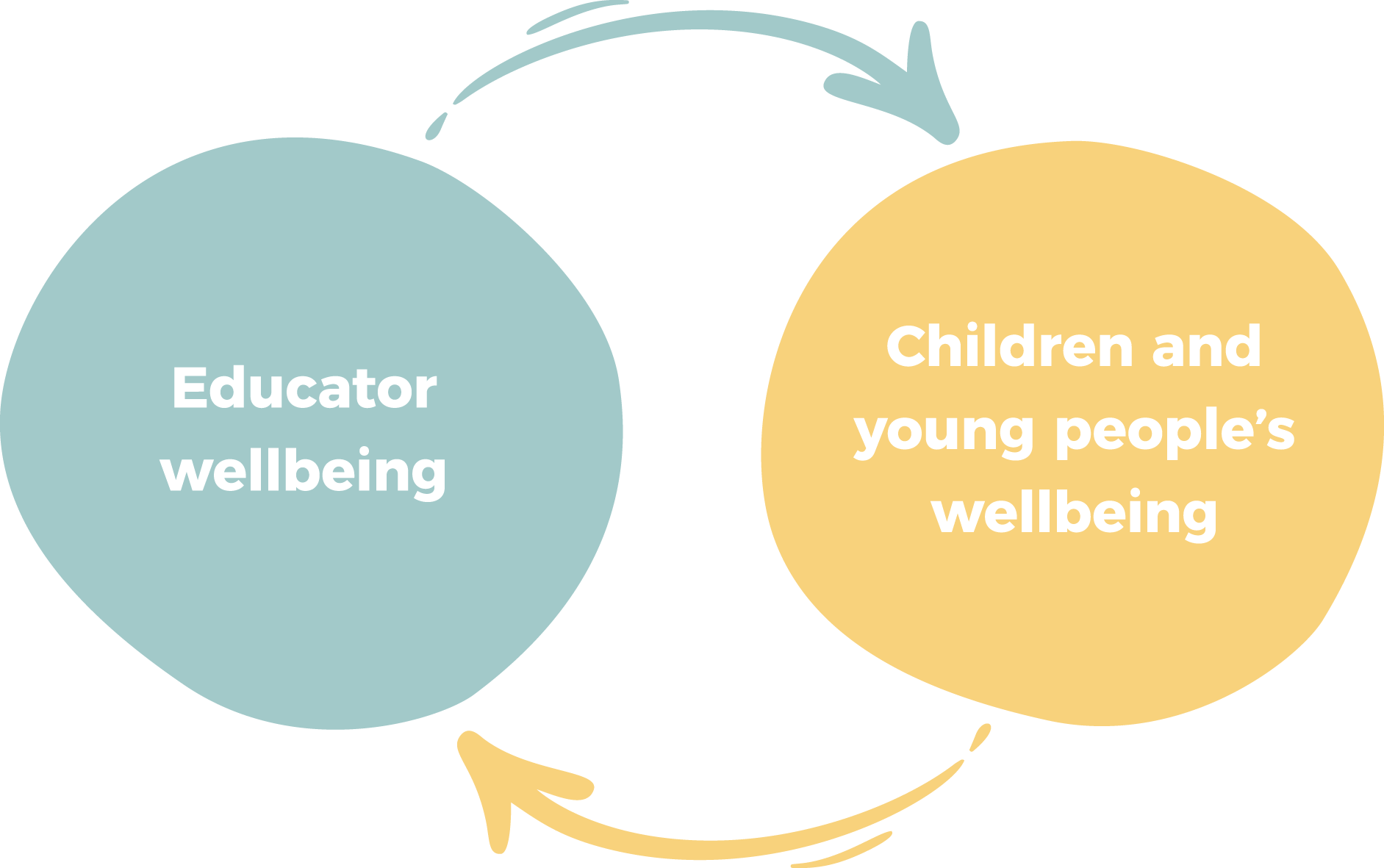
Educator and learner wellbeing create a virtuous cycle that fuels attention and engagement.
Essential skills are best learnt early
There’s unanimous consensus among peak federal, state and educator bodies that we need to nurture children in their early years to give them the best start to life.
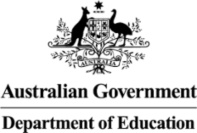
“Nurturing children’s wellbeing is the best way to give them a great start to life.”
“To support children’s wellbeing, we must also sustain the wellbeing of those who help them as they grow.“
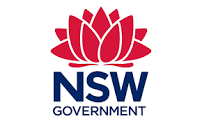
“Physical education is fundamental to the acquisition of movement skills."
The study of PDHPE provides students with the opportunity to enhance and develop resilience and connectedness and learn to interact respectfully with others.“
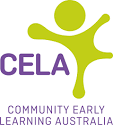
“Emotional regulation skills are now considered crucial to the foundations of a child's healthy dispositions and lifelong learning skills.”
“When self-regulation skills are modelled and practised in early childhood, these skills will continue to develop right through adulthood.”
Tools for Coping + Skills for Thriving
How movement + breath + mindfulness work together to manage stress and promote wellbeing.
OBSTACLES TO LEARNING + PLAY
BUSY/TIRED BRAIN
Waning attention, challenging behaviour, diminishing interest + focus.
SHALLOW BREATHS
Breathing shallows as the nervous system becomes more stressed and attention + focus is lost.
WRIGGLY BODY
Muscles tense, the body begins to wriggle + needs to move.
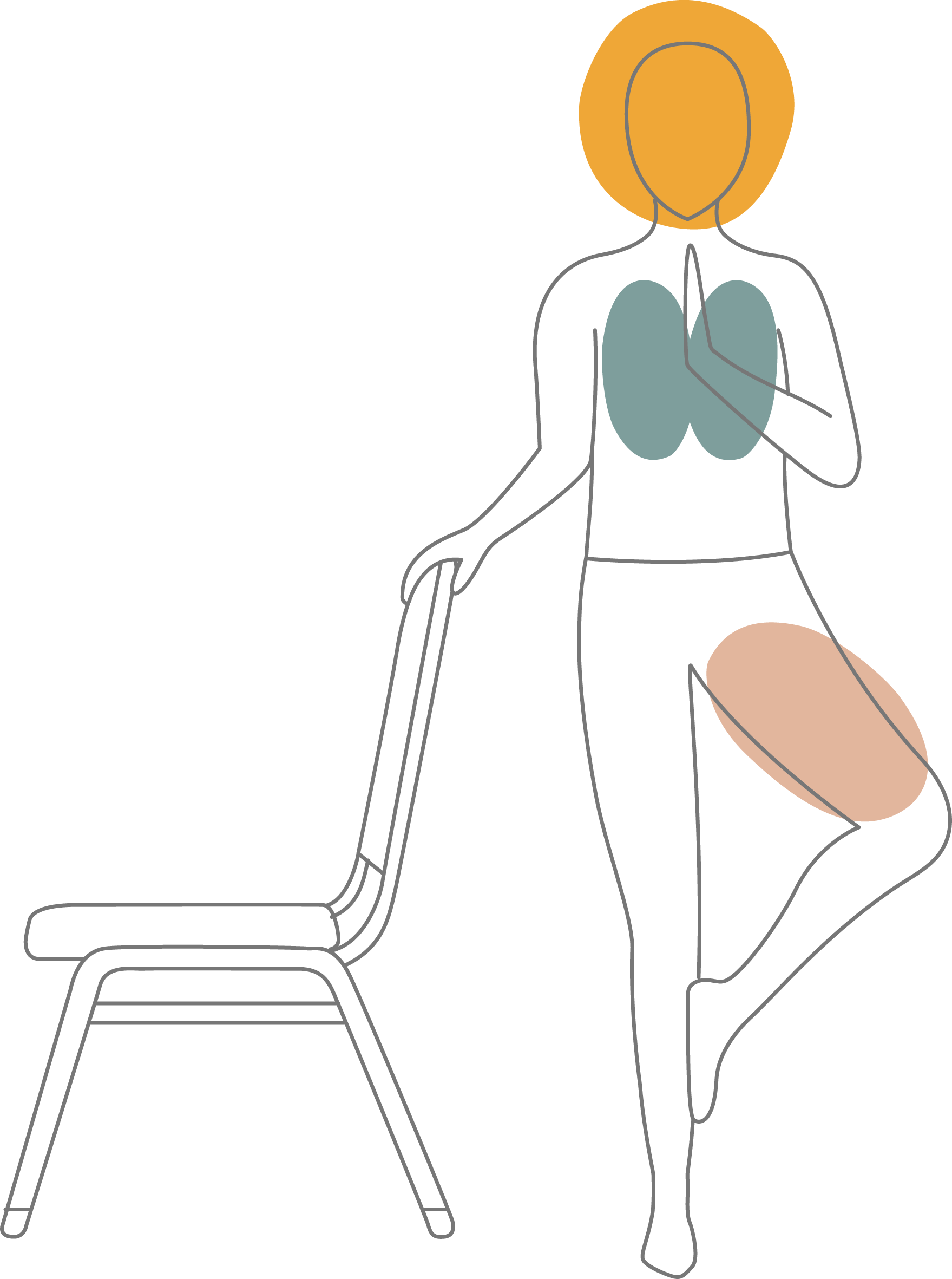
FOUNDATIONS FOR
LEARNING + PLAY
MINDFULNESS
Sharpens concentration + attention, cultivates compassion for self + others, creates the space for inspired learning + play.
BREATH
Calms the nervous system, re-oxygenates brain + body, improves focus, enables self-regulation.
MOVEMENT
Releases muscle tension, boosts mood, reduces impulsive behaviours.
Acknowledging the importance of wellbeing
on children's learning & development
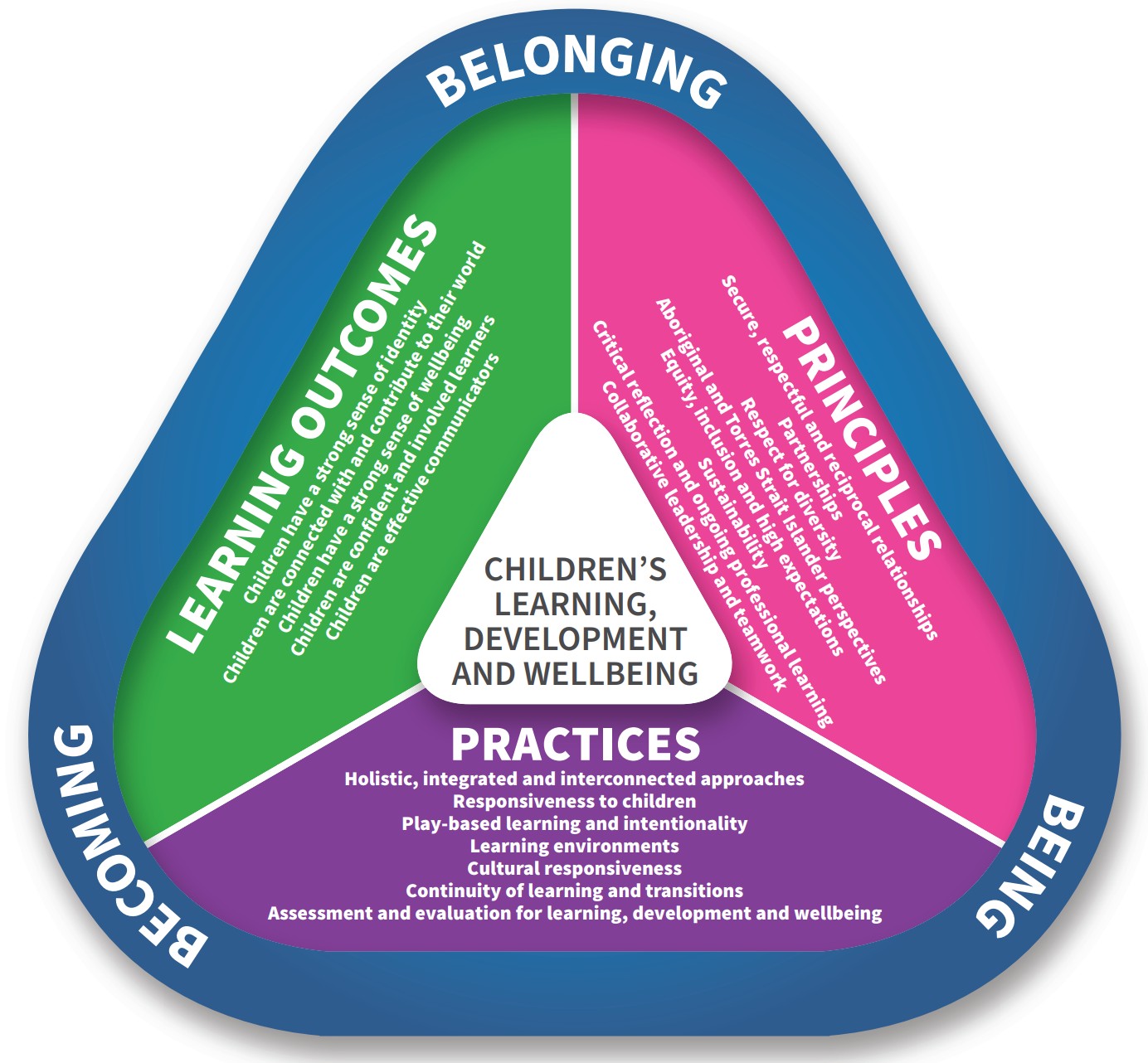
The Karma Class wholly supports the increased focus on wellbeing in the new EYLF 2.0 Outcome 3.
We also realise and honour the reciprocal relationship between the educator, the child and the environment, and advocate for calmer classrooms that support children’s wellbeing alongside whole child development AND teacher wellbeing.
Children cannot learn (or play) when they are hungry and weak, distracted, angry, upset, worried, anxious or scared. They need daily classroom experiences that nurture their capacity for building social + emotional skills, healthy lifestyle habits and physical wellbeing – tools for coping; skills for thriving.
Educators cannot be inspiring and effective when they are stressed and stretched - physically, mentally and emotionally. Since it is their daily mood that creates the classroom climate, they need tools to manage their own self care and overall wellbeing so that they show up each day the best version of themselves.
Our programs recognise the relationship and synergy between educator and learner wellbeing - empowering them both with valuable skills that last a lifetime.
Three core programs that build on each other
We recognise that inspired learning + play requires the right combination of:
- Calm and creative classrooms
- Healthy and resilient educators
- Confident and enthusiastic learners
Our programs are designed to focus on these three core areas. They also work additively because we know that teacher wellbeing affects learner wellbeing, and vice versa.
On their own, each of our programs will make a difference. Together, they can transform the early learning experience.
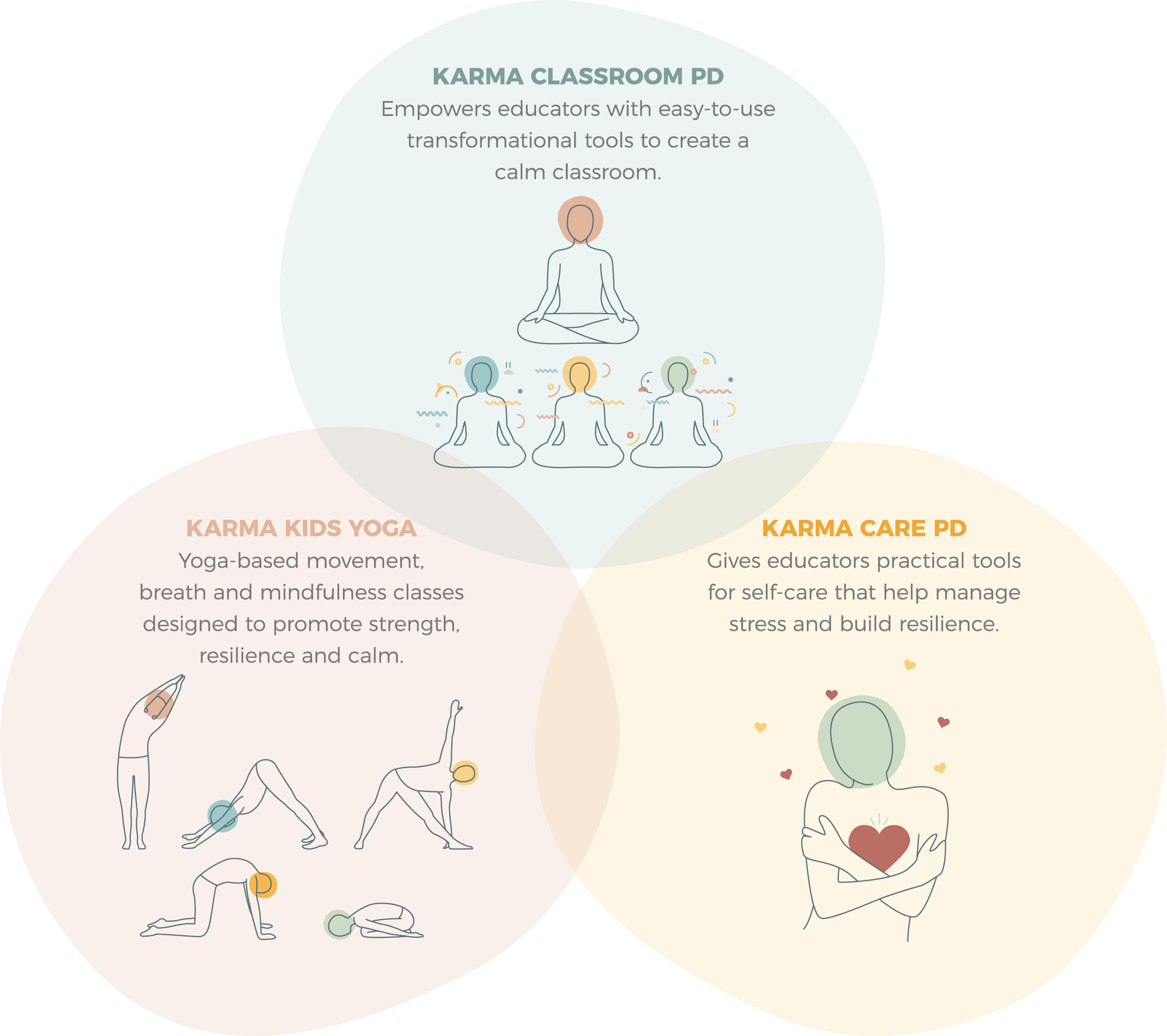
Extending the benefits to families and communities
We are all connected. By giving educators the tools to become more inspired and capable in the classroom, we model positive life skills for children in their early years.
These skills – the ability to focus attention, to be self aware, to be kind and compassionate – carry over into their lives as members of a family and communities.
These same benefits can be extended outwards from your early learning centre or primary school. We can work with you to curate and implement a program that’s aligned with your school and perfect for your community. Read more about yoga and mindfulness here.
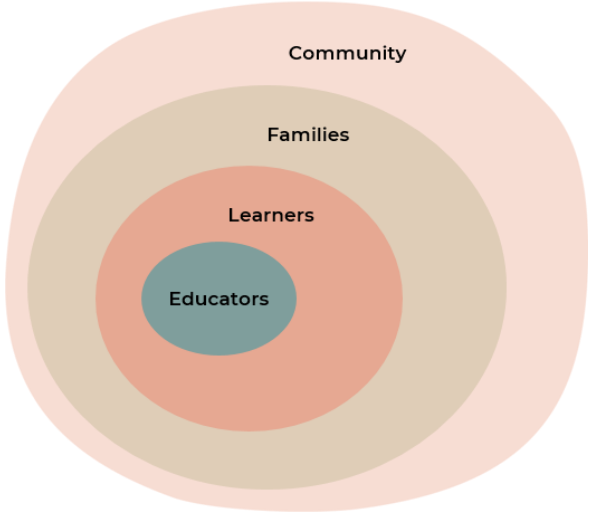
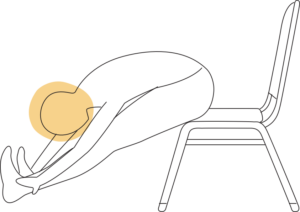
If you are a School or Early Learning leader, Teacher or Parent looking for more information, please get in touch.
Sign up to our Newsletter
Receive monthly tips and tools to support teacher and student wellbeing, and to create calm and inspired classrooms where learning and play thrive.

